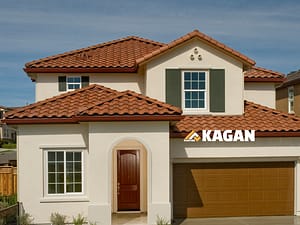As buildings get older, their electrical systems can’t always keep up with today’s needs. Many older commercial buildings in Sydney may struggle to support modern electrical demands. This can lead to frequent power outages, inefficiency, and even safety risks. Updating these systems is key to keeping things running smoothly and safely.
Why Upgrade Your Electrical Systems?
Upgrading the electrical systems in older buildings improves safety, efficiency, and keeps everything up to code. New systems lower the chances of electrical fires, save energy, and handle the growing power needs of today’s businesses. Plus, these upgrades can help cut down on energy bills and reduce maintenance costs.
How to Know When It’s Time for an Upgrade
There are some clear signs that your electrical system might need attention. Keep an eye out for:
- Power outages or frequent breaker trips
- Flickering or dim lights
- Hot outlets or switches
- Old or damaged wiring
- Not enough power for modern devices
Fixing these issues early can stop bigger problems and keep your workplace safe.
Common Problems in Older Electrical Systems
Older systems often deal with problems like:
- Worn-out wiring that no longer meets safety standards
- Not enough circuits to handle today’s power needs
- Damaged insulation, which could leave wires exposed
- No grounding, which increases the risk of shocks and fires
Benefits of Upgrading Electrical Systems
Improved Safety and Compliance
Upgrading your electrical system ensures compliance with current safety standards and regulations. Modern electrical systems are designed to meet stringent safety codes, reducing the risk of electrical fires, shocks, and other hazards. Compliance with these standards not only protects your building and its occupants but also avoids potential fines and legal issues.
Enhanced Energy Efficiency and Cost Savings
Modern electrical systems are more energy-efficient, reducing overall energy consumption and lowering utility bills. Upgraded systems support energy-saving technologies such as LED lighting and smart controls, further enhancing efficiency. These upgrades can lead to significant long-term cost savings and a reduced environmental footprint.
Planning the Upgrade Process
Conducting an Initial Assessment
Before starting an electrical upgrade, it’s essential to conduct a thorough assessment of the existing system. This assessment should include:
- Inspecting wiring, panels, and other components for wear and tear
- Evaluating the current electrical load and future needs
- Identifying any safety hazards or compliance issues
A detailed assessment provides a clear understanding of the scope of the upgrade and helps in planning the necessary steps.
Creating a Comprehensive Upgrade Plan
Developing a comprehensive upgrade plan involves:
- Defining the goals and objectives of the upgrade
- Outlining the steps and timeline for the project
- Estimating the budget and resources required
- Coordinating with stakeholders, including building management and tenants
A well-structured plan ensures a smooth upgrade process, minimizing disruptions and ensuring all aspects of the project are addressed.
Choosing the Right Commercial Electrical Contractor
Key Qualifications and Experience to Look For
Selecting the right commercial electrical contractor is crucial for a successful upgrade. Look for contractors with:
- Relevant licenses and certifications
- Extensive experience with commercial electrical installations
- Strong references and positive reviews from previous clients
A qualified contractor will have the expertise to handle complex electrical systems and ensure compliance with all safety standards.
Questions to Ask Potential Contractors
When evaluating potential contractors, consider asking the following questions:
- What is your experience with similar projects?
- Can you provide references from past clients?
- How do you ensure compliance with safety regulations?
- What is your approach to project management and communication?
- Do you offer any warranties or guarantees for your work?
Asking these questions helps you gauge the contractor’s reliability, expertise, and suitability for your project.
Upgrading Key Electrical Components
Modernizing Electrical Panels and Circuit Breakers
Modernizing your electrical panels and circuit breakers is a crucial step in upgrading your commercial electrical installation. Old or outdated panels can be a safety hazard and may not meet current electrical demands. Newer panels offer enhanced safety features, improved capacity, and better protection against electrical faults. Upgrade circuit breakers ensures that your system can handle higher loads and provides more precise control over electrical distribution.
Upgrading Wiring and Cabling
Upgrading the wiring and cabling in your building is essential for supporting modern electrical loads and ensuring safety. Old wiring can deteriorate over time, leading to potential fire hazards and inefficiencies. Modern wiring materials are more durable and efficient, reducing energy loss and enhancing overall system performance. Ensuring that all wiring is up to current codes and standards is vital for safety and compliance.
Incorporating Energy-Efficient Solutions
Benefits of Energy-Efficient Electrical Systems
Energy-efficient electrical systems provide numerous benefits, including reduced energy consumption, lower utility bills, and a smaller carbon footprint. Upgrading to energy-efficient systems can significantly cut operating costs while contributing to environmental sustainability. These systems are designed to maximize performance with minimal energy use, making them a smart investment for any business.
Implementing LED Lighting and Smart Controls
LED lighting and smart controls are key components of energy-efficient electrical systems. LEDs use significantly less energy than traditional lighting and have a longer lifespan, reducing maintenance costs. Smart controls, such as automated lighting and HVAC systems, optimize energy use by adjusting settings based on occupancy and time of day. Implementing these technologies can greatly enhance the efficiency and functionality of your electrical system.
Ensuring Compliance with Safety Standards
Understanding Local and National Electrical Codes
Compliance with local and national electrical codes is essential for safety and legality. These codes are designed to ensure that electrical installations meet minimum safety standards and are capable of handling the required electrical loads. Familiarize yourself with the relevant codes and regulations to ensure your upgrade project meets all necessary requirements.
Working with Certified Electricians
Hiring certified electricians is crucial for ensuring compliance and safety. Certified professionals have the training and experience to perform installations and upgrades according to the highest standards. They can identify potential issues, provide solutions, and ensure that all work meets or exceeds regulatory requirements. Working with certified electricians provides peace of mind and ensures the quality and safety of your electrical system.
Managing Disruptions During Upgrades
Minimizing Downtime and Business Interruptions
Managing disruptions during electrical upgrades is essential to maintaining business operations. Planning and coordination are key to minimizing downtime. Schedule upgrades during off-peak hours or times when the impact on business operations will be minimal. Clear communication with employees and customers about the timing and extent of the work can also help mitigate disruptions.
Effective Communication with Tenants and Employees
Effective communication with tenants and employees is crucial during the upgrade process. Inform all stakeholders about the project timeline, expected disruptions, and any safety precautions they need to take. Providing regular updates and being transparent about any changes to the schedule can help maintain trust and cooperation. Ensure that everyone understands the benefits of the upgrades and how they will enhance safety and efficiency.
Long-Term Benefits of Electrical Upgrades
Upgrading electrical systems in older commercial buildings offers numerous benefits, including improved safety, compliance with regulations, enhanced energy efficiency, and reduced operating costs. Modernizing key components such as electrical panels, wiring, and incorporating energy-efficient solutions can significantly enhance the performance and reliability of your electrical system.
Encouragement to Modernize Electrical Systems
Investing in electrical upgrades is a smart decision for any business. Not only does it improve safety and compliance, but it also enhances efficiency and can lead to substantial cost savings over time. By working with experienced commercial electrical contractors and certified electricians, you can ensure that your upgrade project is completed to the highest standards, providing long-term benefits for your business.










